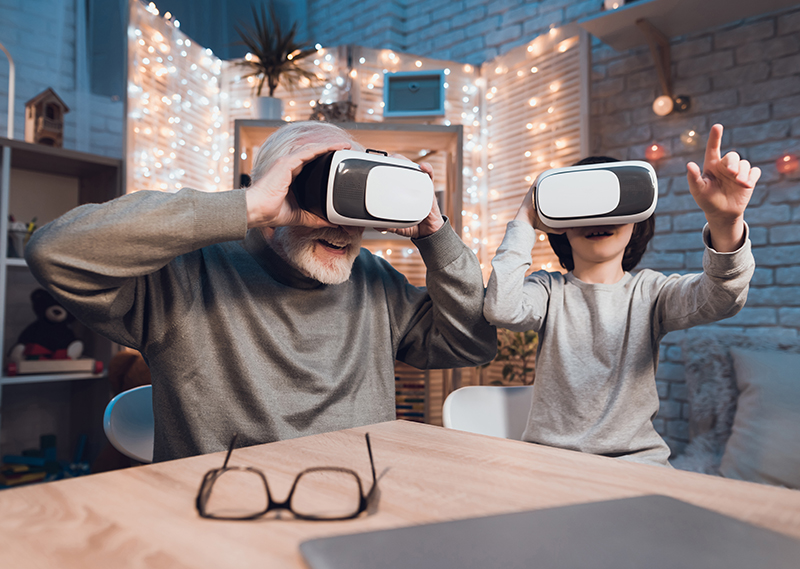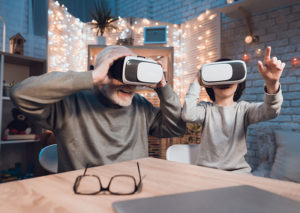The Strategy You Have to Try: Virtual Reality in Dementia Care


Virtual reality in dementia care can be highly effective in improving engagement, communication, and joy.
Imagine for a moment how it could feel to struggle with the cognitive challenges of dementia. The people who are closest to you are now unfamiliar. The words and phrases that would roll off your tongue without a second thought are now just beyond your grasp. In fact, the world as you once knew it has turned completely topsy-turvy, leaving you yearning for a recognizable foothold.
However, one of the kindnesses imparted by Alzheimer’s is the long-term memories that oftentimes remain intact long after short-term memories have disappeared. It’s why connecting older adults with Alzheimer’s to the past is often a remarkably effective way to engage them – through music, movies, photos, and reminiscing. Now we can add a high-tech tool to the list of ways we can help seniors mentally connect with the past that is demonstrating impressive outcomes: virtual reality in dementia care.
Skip Rizzo, director for medical virtual reality at the USC Institute for Creative Technologies, has been utilizing the technology to aid veterans experiencing post-traumatic stress disorder. He’s now expanding his reach to seniors – starting with his own 89-year-old mother, whose delightful response to a virtual trip to Rome confirmed exactly how effective the technology can be for older adults.
Rizzo shares an experience in which he visited a senior living home where a small group of residents were simply sitting around a table in silence, until he began showing them flashcard-like pictures of objects from the past. The transformation in the atmosphere was electric, as the seniors began sharing memories with one another. With the potential of low-tech tools such as simple pictures to produce delight for older adults, just imagine the possibilities available to us now with high-tech options like virtual reality!
What Are the Outcomes of Using Virtual Reality in Dementia Care?
The benefits of virtual reality for older adults goes beyond merely boosting memory and bringing enjoyment, such as:
Improved Health Care
The distraction of virtual reality is showing to be a successful tool for easing pain for seniors. It can also be used to improve motor skills and balance as well as improve spatial reasoning. It can even help physicians identify health conditions by observing how older adults respond in various games and activities.
Enhanced Socialization
We all know that older adult isolation is a contributing aspect in a number of mental health and physical issues. A recent research study conducted by the National Academies of Sciences, Engineering and Medicine revealed that as many as one in four older adults are feeling socially isolated. To tackle this concern, AARP Innovation Labs developed an app called Alcove, in which seniors and their family and friends can enjoy virtual reality experiences together.
Want to explore creative options to improve quality of life for a senior you love? Connect with our aging care team at (866) 940-4343 for additional information on our specialized dementia care in Novato, Napa, Sonoma, and the surrounding areas.








Leave a Reply